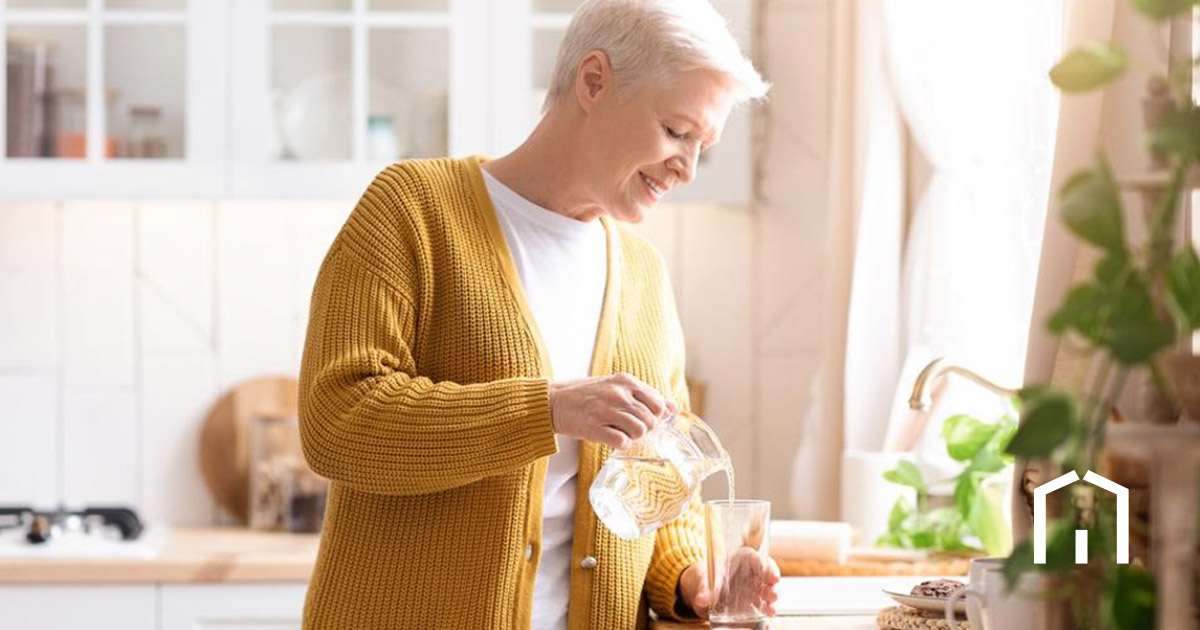

Importance Of Hydration For Seniors In Hot Weather
With the hot weather closing in during the summer heat spells, it’s more important than ever that seniors stay hydrated. Dehydration occurs often among this population of people, but it can all be eliminated simply by reminding them to drink water or providing them with sports drinks to replenish electrolytes. The importance of hydration for seniors in hot weather cannot be understated.
Here’s what you need to know to stay properly hydrated during these intense summer months:
Staying Hydrated May Not Be Intuitive
As seniors age, the internal systems that let them register thirst don’t work as well as they used to. This means they may not notice when their bodies are telling them it's time to take a drink. As a result, seniors often become rapidly dehydrated and suffer from electrolyte imbalances.
Because they need more help to spot the signs of dehydration, you may want to educate yourself and keep an eye out for these symptoms:
- Dry skin or lips that require chapstick
- Dry mouth
- Dry throat that makes speaking difficult
- Dark urine
- Dizziness or confusion
- Feeling tired
- Frequent headaches
If you notice any of these signs of dehydration, you need to encourage them to take a drink as soon as possible. Dehydration can be a life-threatening emergency, especially when combined with extreme heat. Ensure water is available throughout the day to minimize the risk of severe dehydration.
Heat-Related Illnesses
In addition to dehydration, summertime temperatures can also cause heat injuries like heat exhaustion or heat stroke. You should know the warning signs that body temperature is getting too high and help seniors to cool down by drinking water, taking a cool bath, or getting inside and away from the temperatures outdoors.
Heat Exhaustion
Heat exhaustion is a warning sign that you’re overheating. You may have profuse sweating, dizziness, weakness, and even nausea. Replenish the fluids your body is losing throughout the day in this heat, and try to lie down somewhere cool until you feel better.
Heat Stroke
Heat stroke is much more dangerous and may require medical intervention if not corrected quickly. It can look like loss of consciousness, deep, rapid breathing, not sweating at all, confusion, a rapid or weak pulse, and flushed skin. Drink water immediately and lay down somewhere cool. You may also experience muscle weakness.
Know the common signs many seniors face, and always keep a water bottle handy. Many of these issues can be avoided with hydration.
Taking Precautions
When it comes to drinking water, seniors especially need to stay hydrated in this hot weather. Take the proper precautions to drink fresh water and minimize alcoholic beverages. Of course, don't forget other tips to enjoy the great outdoors safely and always wear sunscreen.
If you’re concerned that a senior in your life might need more help, home care assistance in Winnipeg from Right At Home Winnipeg is here to assist. Reach out to us today to learn more about how we can help older adults stay cool with independent living, even with the increased risk of dehydration and heat-related injuries.
Why Right at Home?
- Over 20 years of experience. Right at Home has been providing award winning customized senior care and home care for over 20 years.
- YOUR Caregivers are all part of YOUR Care Team. This means that there is no revolving door of Personal Support Workers and Nurses. With the help of your Care Planner, you choose and get to know them. This leads to an level of care for your loved one that is unsurpassed in our industry.
- Working with government support. Your Care Planner will work to help you find the government supports you are eligible for (if you would like them) and then work to find a solution for the care needs that go above what government and family can do. We will also work around the government care plan so that we are enhancing it.
We help in home, wherever home is to you.
Our Caregivers are always out in the community visiting homes, Retirement Residences, Long Term Care (LTC), hospices and hospitals.